
Food is a double-edged sword. Eating the right food is necessary simply to keep us alive. But make the wrong food choices, and it can ruin your health — and possibly shorten your life.
Following are some foods you should never buy again. In some cases, these foods are known to cause harm to the human body. In other cases, more healthful choices are available.
1. White rice
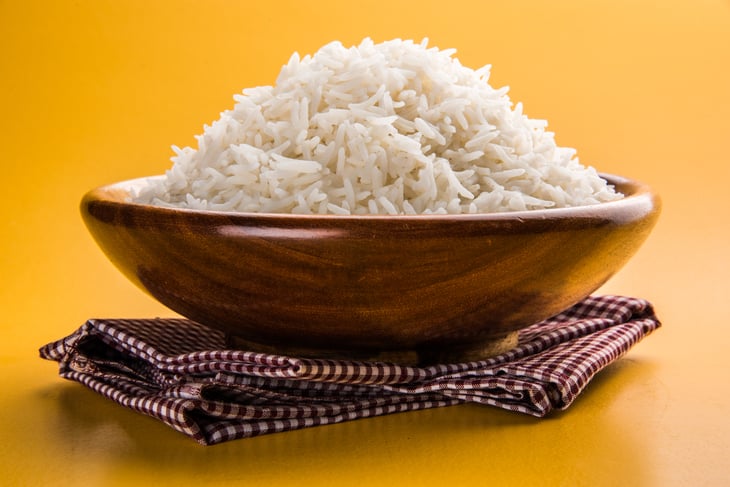
White rice is a stockpile staple because it can last for decades when stored properly, as we detail in “20 Things That Are Actually Worth Stockpiling.” But there are better choices for your health.
Brown rice is more nutritious because it is a whole grain, meaning it is unrefined. White rice is refined, a process that removes nutrients.
A 2010 study found that people who ate at least five weekly servings of white rice had a 17% higher risk of developing Type 2 diabetes than those who ate less than one serving per month.
So switch to brown rice or another healthier grain of your choice. In the study, those who ate a least at least two servings of brown rice weekly had an 11% lower risk of developing Type 2 diabetes than those who ate less than one serving a month.
Brown rice does tend to contain more arsenic than white rice, but you can remove a significant amount if you prepare it a certain way, as we report in “You’re Probably Cooking This Food the Wrong Way.”
2. Lunch meats
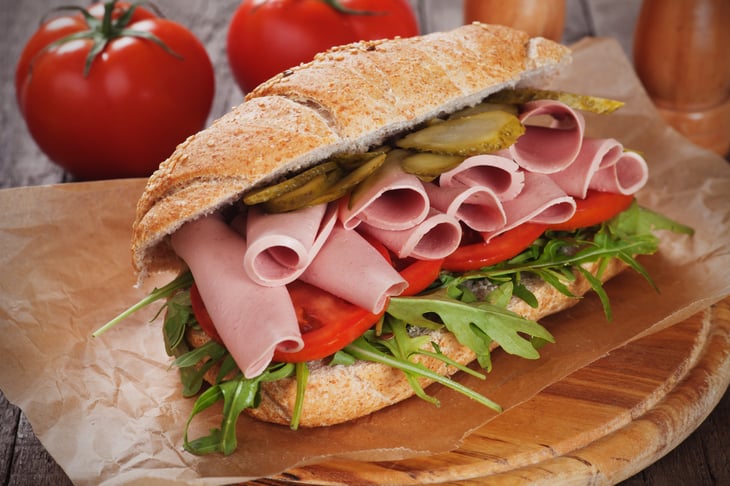
Lunch meats long have been a staple of meals eaten at work or school. But in 2015, the World Health Organization delivered the bad news: The agency declared processed meats to be carcinogenic to humans.
In other words, there is sufficient evidence that consuming them causes cancer in humans — specifically, colorectal cancer — the WHO concluded.
The organization defined processed meats as those that have been “transformed through salting, curing, fermentation, smoking, or other processes to enhance flavour or improve preservation.” Examples include hot dogs, sausages, corned beef, beef jerky and canned meat.
3. Swordfish

Fish can be a cornerstone of a healthful diet. A 2020 study also found it to be the most important dietary factor in avoiding cognitive decline as you age, as we report in “Eat This Food If You Want to Avoid Alzheimer’s Disease.”
But it’s best to consume fish with a low mercury content because mercury can damage the human brain and nervous system.
To stay safe, you may want to avoid eating swordfish, which tends to have high levels of mercury, a chemical element that enters the environment naturally but also through pollution. And the mighty swordfish gobbles up a lot of smaller fish that tend to feast on mercury-laden plants and animals.
All that mercury eventually ends up in the swordfish — and potentially in you. The Food and Drug Administration offers a list of fish that are safer to eat.
4. Soda

Sorry, folks — that daily Coke or Mountain Dew puts you at risk for more than just a sugar-induced crash later in the day. Drinking soda is tough on your teeth. But even worse, it’s bad for your heart.
In fact, men who drink just one can of a sugary drink daily increase their risk of heart attack by 20% compared with men who seldom consume sugary drinks, according to the nonprofit Center for Science in the Public Interest.
Consumption of sugary soda also is linked to higher rates of obesity and Type 2 diabetes.
5. Energy drinks

Sure, guzzling an energy drink can put rocket fuel in your day. But it also can damage your health over the long haul.
The Centers for Disease Control and Prevention says energy drinks can lead to heart problems such as irregular heartbeat and even heart failure. These drinks also have been linked to everything from dehydration to insomnia and increased anxiety.
6. Ice cream

Everyone knows ice cream is not good for your waistline or your arteries. Somewhat bizarrely, eating ice cream may even trigger a cycle of brain activity typically seen in drug addicts.
A 2012 study published in the American Journal of Clinical Nutrition — a scientific journal published by the American Society for Nutrition — found that eating ice cream regularly “is related to a reduction in reward-region responsivity in humans, paralleling the tolerance observed in drug addiction.”
In other words, over time, you may need to eat more and more ice cream just to reach the same level of satisfaction you previously got from gobbling the cold treat. Who knew?
7. Multigrain bread

The very name “multigrain” screams that this is good for you. After all, when it comes to healthful fare, more has to be better, right?
But the prefix “multi” here is a bit misleading. According to the Cleveland Clinic, multigrain bread that doesn’t mention a percentage is probably made mainly from refined white flour, which lacks most of the healthful benefits found in whole grains and can raise your blood sugar.
So, put the multigrain bread back on the shelf and choose its neighbor instead, “100% whole grain” bread, which uses all parts of the grain kernel (the bran, germ and endosperm). In other words, breads labeled as “100% whole grain” are made entirely with whole grains, not refined grains, and therefore are more nutritious.
8. Microwave popcorn

This one is a little controversial. Some people say that an ingredient in many brands of microwave popcorn, diacetyl, can trigger a condition known as “popcorn lung.”
In essence, the danger is that you might develop the lung disease bronchiolitis obliterans, which damages the smallest airways and can leave you coughing and short of breath.
However, it’s those who work in microwave-popcorn factories who are at the greatest risk of this illness, and it’s unclear whether simply eating this type of popcorn puts you in danger. To be safe, though, it might be best to simply pop and flavor your own popcorn.
There are multiple ways to pop plain kernels on your stove and even in your microwave. You will spare yourself exposure to whatever chemicals might line the inside of the bag, and you will have full control over the amount of salt. You’ll probably save money too.
9. Canned soup
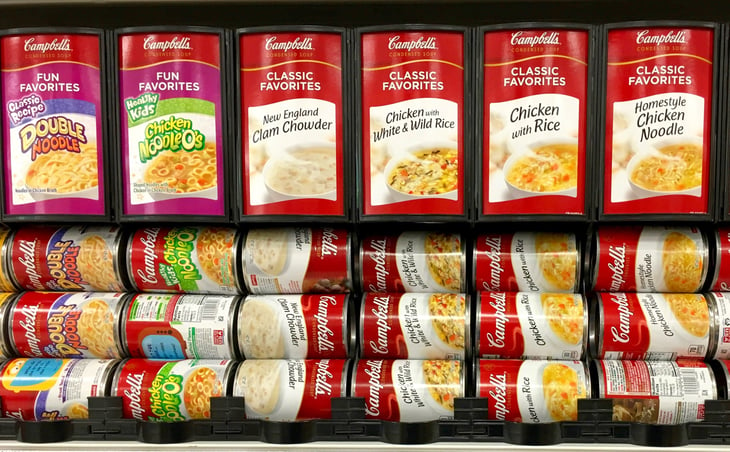
Soup generally is good for you, but there is one huge drawback to buying canned varieties: sodium. Many canned soups are loaded with sodium, which can cause health maladies such as high blood pressure and heart issues.
So the U.S. Department of Health and Human Services urges you to look for low-sodium or “no salt added” varieties. Or even better, make your own soup so you can control sodium levels.
10. Cereal
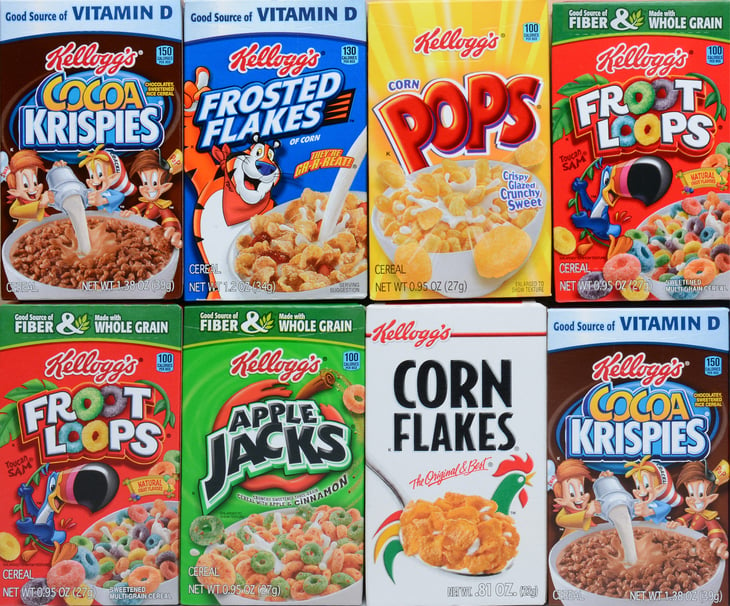
Those of us who have reached a certain age remember when Olympic gold-medal athlete Bruce Jenner appeared on a box of Wheaties under the slogan “The Breakfast of Champions.”
But a lot has changed since the 1970s. Jenner no longer goes by the name “Bruce,” and we are all a bit wiser about the potential health danger posed by breakfast cereal.
Many of these cereals are loaded with added sugar and refined carbohydrates. Eating such foods causes a rise of blood sugar and insulin levels.
In addition, consuming high levels of sugar has been associated with everything from Type 2 diabetes to heart disease and cancer.
11. Frozen pizza

The next time someone tells you about a cheesy, tangy frozen pizza that is “to die for,” take them at their word.
Eating ultra-processed foods such as frozen pizzas — as well as hot dogs and doughnuts — might lead to a premature death, according to a 2022 study.
Researchers in Brazil found that among a group of more than 500,000 adults who died between the ages of 30 and 69, eating processed foods was likely responsible for 10.5% of the deaths — or 57,000 people.
The researchers noted that they were conservative in their estimates, and the toll could be much higher.
12. Canned fruit
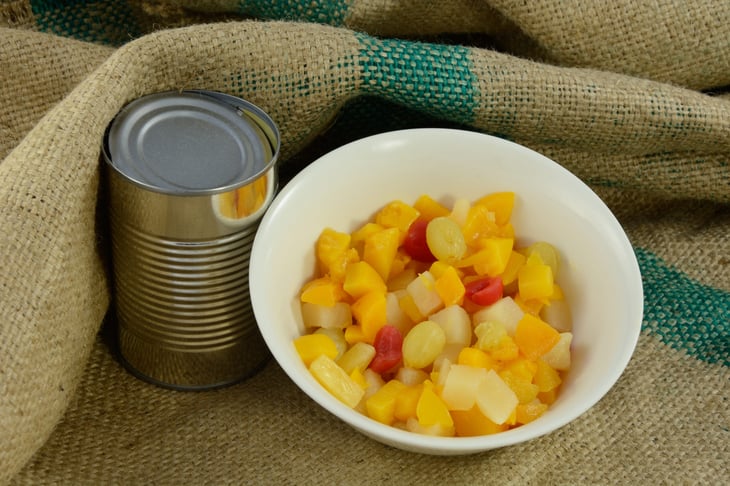
Most Americans eat far too few fruits and vegetables. So seeing canned fruit on this list is probably a bit of a head-scratcher.
Canned fruit should be good for you. Unfortunately, most varieties are loaded with added sugar. And as mentioned earlier in this story, excess sugar intake can lead to a host of health problems.
Fortunately, there is an easy fix here. Instead of reaching for fruit canned in “heavy syrup,” look for fruit canned in water or that has the label “unsweetened” or “no sugar added.”
13. Coffee creamer

Some folks cannot image a cup of joe without a splash of coffee creamer. But coffee creamer typically is loaded with health-wrecking partially hydrogenated oils, corn syrup and other refined sugars.
Partially hydrogenated oil is a form of trans fat, which is known to raise the risk of heart attacks, stroke and Type 2 diabetes. Consuming trans fats also can have a negative impact on your cholesterol levels.





Add a Comment
Our Policy: We welcome relevant and respectful comments in order to foster healthy and informative discussions. All other comments may be removed. Comments with links are automatically held for moderation.